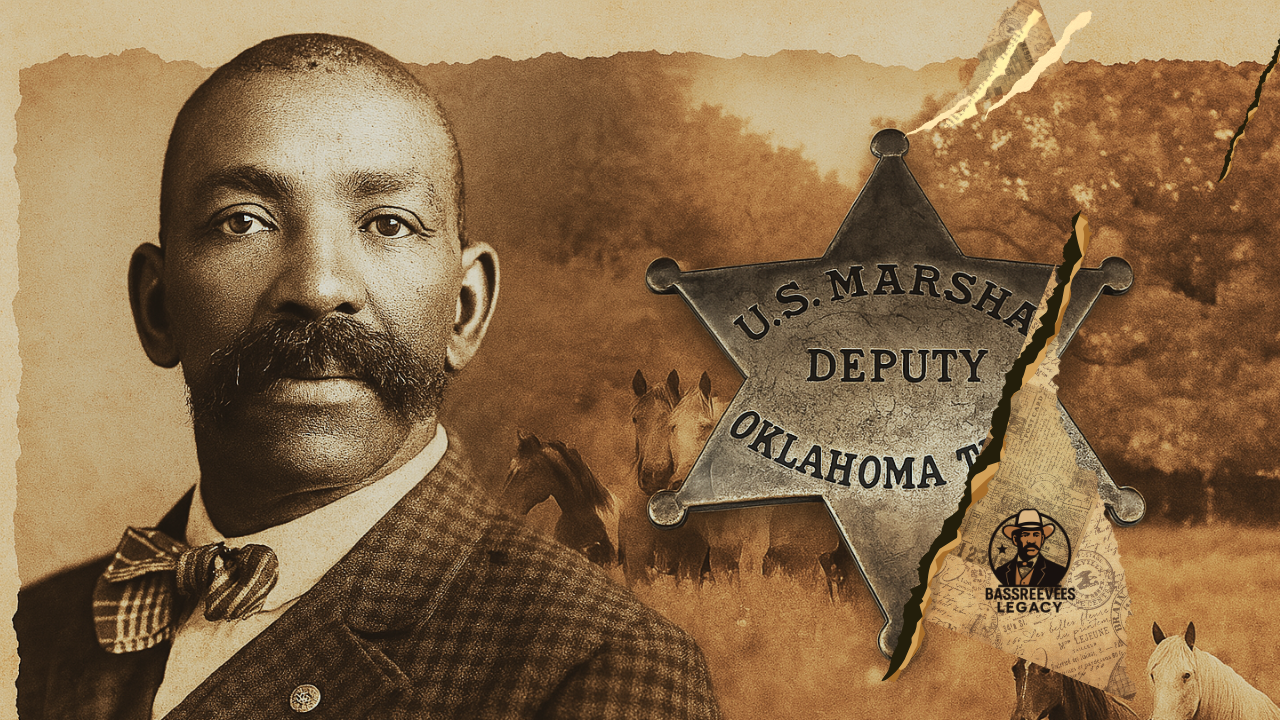The Untold Story of a Forgotten American Hero
When most people think of lawmen of the Old West, names like Wyatt Earp and Wild Bill Hickok come to mind. But one of the most effective, courageous, and fascinating figures of that era is often left out of the conversation — Bass Reeves.
Born into slavery in 1838, Bass Reeves would rise to become the first Black U.S. Deputy Marshal west of the Mississippi. Over a 30-year career, he arrested more than 3,000 outlaws, survived numerous gunfights, and brought law and order to the Wild West. He was a skilled tracker, a master of disguise, and a devoted family man. So why hasn’t Hollywood made him a household name?
Let’s dive into the remarkable life and lasting legacy of Bass Reeves — the real lawman behind the legend.
From Enslavement to Freedom
Bass Reeves was born in Arkansas and enslaved by William Reeves, a prominent landowner who later moved to Texas. During the Civil War, Bass was forced to serve his enslaver in the Confederate Army. But somewhere along the way, he escaped — some say after a dispute over a card game — and fled into Indian Territory (now Oklahoma), where he lived among the Cherokee, Creek, and Seminole Nations.
It was there that Reeves learned the languages, customs, and tracking skills that would later define his law enforcement career.
A Career of Courage and Strategy
In 1875, Isaac Parker, the “Hanging Judge” of the Western District of Arkansas, appointed Bass Reeves as a deputy U.S. marshal. It was a bold move — at the time, few Black men held such high authority in federal law enforcement. But Reeves quickly proved himself.
Working across 75,000 square miles of Indian Territory, Reeves developed a reputation for bringing in outlaws no one else could catch. He often used disguises to trick criminals, entering towns undercover as a cowboy, farmer, or even an outlaw himself.
He never learned to read or write — but he memorized arrest warrants and relied on trusted assistants to brief him. His honesty, bravery, and commitment to justice earned him the respect of his peers — and sometimes even of the criminals he arrested.
The Lone Ranger Connection
Reeves rode a white horse, carried silver accessories, and had a Native American scout as his partner. Sound familiar?
Many historians now believe that Bass Reeves was the real-life inspiration for the fictional Lone Ranger — though the 1930s radio show and later television series never credited him. The character was whitewashed and reimagined, while Reeves’ story was largely ignored by popular culture.
At TheRealLoneRanger.com, we explore this connection in detail — separating the myth from the man.
A Legacy Worth Telling
Bass Reeves passed away in 1910, but his story is finally beginning to receive the recognition it deserves. Statues have been erected. Books and documentaries are being made. And through the Bass Reeves Legacy Project, we’re building a platform that connects history lovers, educators, and storytellers who want to ensure this true American hero is never forgotten.
Want to Learn More?
Start exploring the full story across our legacy network:
- BassReevesBooks.com – Explore our historical novels and educational tools
- BassReevesLawman.com – Dive into the real documents, records, and maps from his career
- TheRealLoneRanger.com – Discover how myth and media erased the truth
Join the Movement
Help us restore Bass Reeves to his rightful place in American history.
[Download our Educator Kit]
[Subscribe for updates and early screenings]
[Share this post to spread the word]
Because legends live forever — and the truth deserves a voice.
